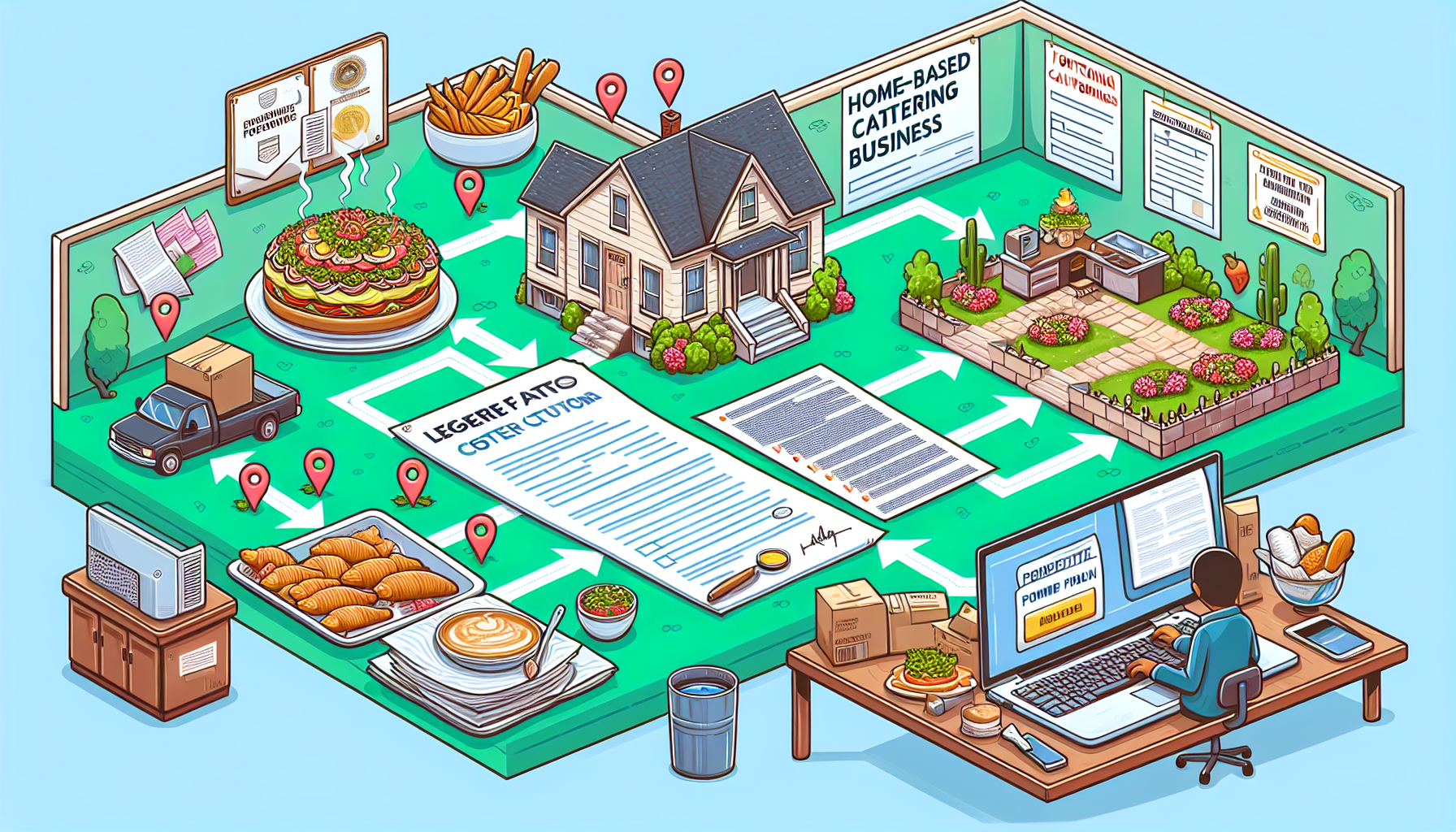 ### Selecting Your Niche and Developing Your Business Plan
### Selecting Your Niche and Developing Your Business Plan1. **Identify Your Niche**:
Identify what unique catering services you can offer. Consider specializing in a specific type of cuisine, dietary preferences (vegan, gluten-free, etc.), or event types (weddings, corporate events, parties). Conduct market research to analyze competitors and potential customer bases in Fontana, CA.
2. **Create a Business Plan**:
Outline your business objectives, target audience, menu offerings, pricing strategy, marketing plan, and financial plan. A well-defined business plan will not only guide your operations but will also be essential for securing financing if needed.
### Legal Requirements and Permits
3. **Choose a Business Structure**:
Decide whether you want to operate as a sole proprietorship, partnership, limited liability company (LLC), or corporation. Each structure has different legal and tax implications. An LLC is often recommended for small catering businesses due to its combination of liability protection and tax flexibility.
4. **Register Your Business**:
Register your business name with the California Secretary of State. Also, obtain a Federal Employer Identification Number (EIN) from the IRS, which is needed for tax purposes and to open a business bank account.
5. **Obtain a Business License**:
Apply for a business license from the City of Fontana. You can do this through the City’s Business License Division. Check the official Fontana website for specific requirements and fee structures.
6. **Home Occupation Permit**:
Since you will be operating from home, obtain a Home Occupation Permit from the City of Fontana’s Planning Division. This permit ensures that your home-based business complies with local zoning regulations.
7. **Food Handler Certification**:
Complete a food handler training program approved by the California Department of Public Health. All individuals handling food in your business must be certified. It’s a legal requirement and critical for ensuring food safety.
### Health and Safety Compliance
8. **Health Department Permits**:
Obtain the necessary permits from the San Bernardino County Department of Public Health. Your home kitchen must pass an inspection to ensure it meets sanitation and food safety standards. This requirement ensures that your kitchen complies with the California Retail Food Code (CalCode).
9. **Kitchen Requirements**:
Your kitchen must meet specific requirements, such as having a separate hand washing sink, proper storage areas for food and utensils, and adequate refrigeration. It may need to be separate from your personal kitchen area.
### Insurance and Financial Management
10. **Get Business Insurance**:
Secure liability insurance to protect against potential legal claims. Consider additional coverage for your specific needs, such as property insurance for your equipment. Consult with an insurance agent experienced in catering businesses.
11. **Open a Business Bank Account**:
Open a separate bank account for your business to keep personal and business finances distinct. This action will make managing finances easier and more transparent for tax purposes.
12. **Accounting and Bookkeeping**:
Use accounting software like QuickBooks or hire a professional accountant to manage your finances. Keep meticulous records of all income and expenses, which are crucial for tax reporting and financial planning.
### Setting Up Your Kitchen
13. **Kitchen Equipment**:
Invest in high-quality kitchen equipment suitable for large-scale food preparation. This includes commercial-grade appliances, cookware, and utensils.
14. **Ingredient Suppliers**:
Establish relationships with reliable suppliers for fresh ingredients. Consider local farmers markets, wholesale food suppliers, and specialty stores.
### Creating Your Menu
15. **Designing Your Menu**:
Create a versatile and appealing menu that showcases your culinary skills. Include a variety of options to cater to different tastes and dietary needs. Ensure that all your offerings are cost-effective and that you price them competitively.
16. **Recipe Standardization**:
Standardize your recipes to ensure consistency in taste and quality. Create portion control guidelines to manage food costs and avoid waste.
### Marketing Your Business
17. **Branding**:
Develop a strong brand identity with a professional logo, business cards, and a website. Your brand should reflect the quality and style of your catering services.
18. **Online Presence**:
Create a user-friendly website with an online ordering option, menu details, and customer testimonials. Optimize your website for local search engines to attract clients in Fontana. Utilize social media platforms like Facebook, Instagram, and Twitter to promote your business and engage with customers.
19. **Networking and Referrals**:
Attend local business events, join the Fontana Chamber of Commerce, and network with event planners, wedding coordinators, and other local businesses. Encourage satisfied customers to share their experiences and refer your services to others.
### Operational Best Practices
20. **Hiring Staff**:
If needed, hire staff who share your commitment to quality and food safety. Ensure all employees are trained and certified in food handling. Conduct background checks and provide ongoing training to maintain high standards.
21. **Delivery and Transportation**:
Plan the logistics of delivering catered food. Invest in appropriate packaging and transport equipment such as insulated carriers to ensure food remains fresh and presentable upon delivery.
22. **Customer Service**:
Provide exceptional customer service to build a loyal client base. Be responsive to inquiries, flexible with special requests, and ensure timely and professional delivery of services.
### Managing Growth and Expansion
23. **Feedback and Improvement**:
Regularly seek feedback from customers and use it to improve your services. Stay updated with industry trends and continuously refine your menu and operations.
24. **Scaling Your Business**:
As your business grows, consider additional revenue streams, such as offering cooking classes, meal prep services, or expanding into larger scale events. Continuously re-evaluate and expand your marketing strategies to reach a broader audience.
By following these steps meticulously, you’ll be well on your way to establishing a successful home-based catering business in Fontana, CA, that complies with all local and state regulations.

Comments
Post a Comment